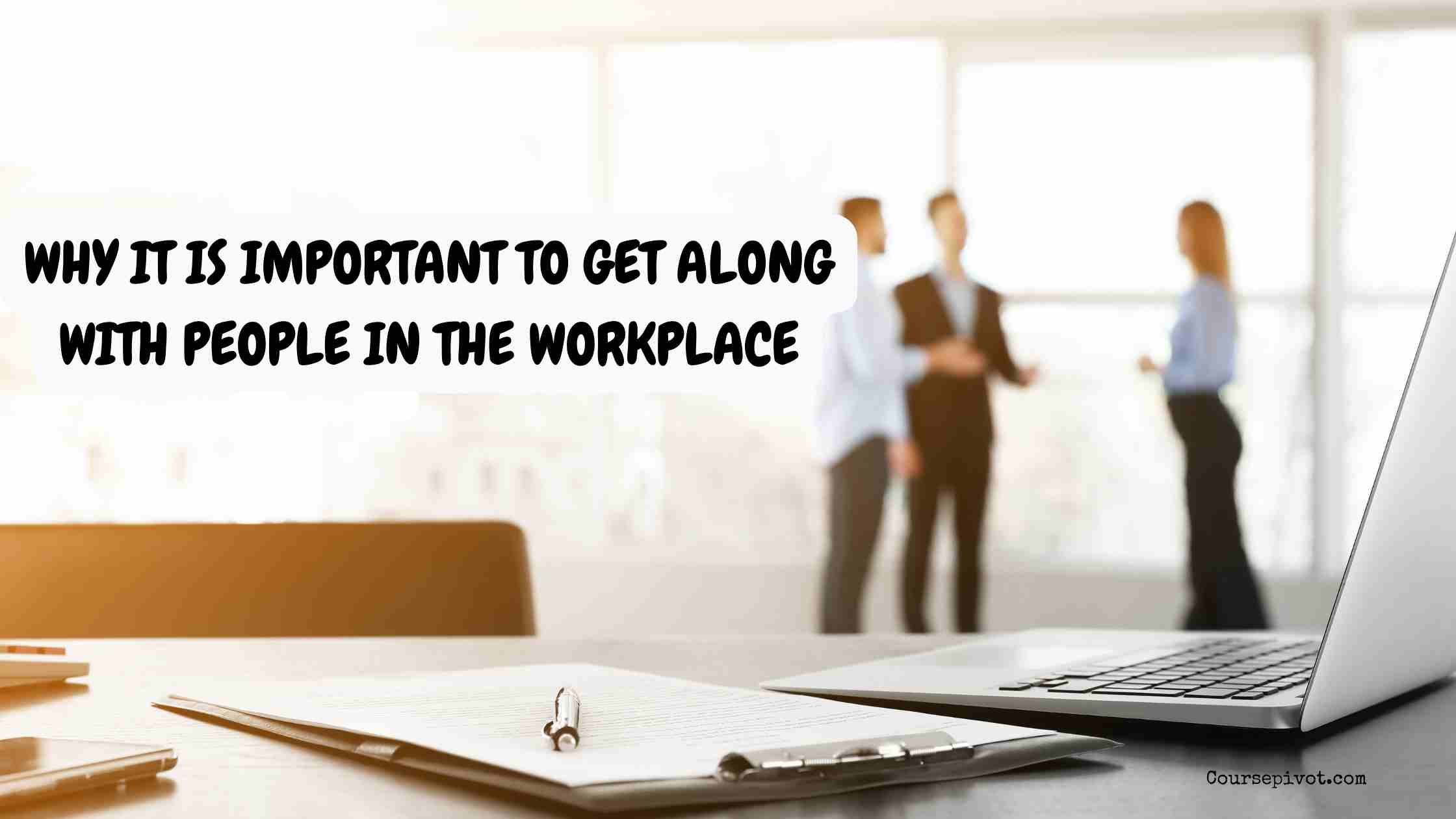
Why It Is Important to Get Along with People in the Workplace
Building positive relationships with coworkers is more than just a feel-good goal—it’s a cornerstone of professional success and workplace harmony. I’ve seen how strong workplace bonds boost productivity and make tough days easier, while conflicts can derail teams. Understanding why it is important to get along with people in the workplace highlights the benefits for individuals and organizations.
Table of Contents
In this article, I’ll explain five key reasons why fostering good relationships at work matters, based on my insights into workplace dynamics as of May 2025. These reasons show the value of collaboration. Let’s dive into why workplace relationships are crucial and how they shape your career.
Ever wondered why getting along with coworkers makes such a difference? It’s not just about being nice—it drives success. Ready to explore five reasons to build workplace harmony?
Workplace vibes matter. I’ve noticed how teamwork thrives when people click, but tension stalls progress. Let’s uncover why getting along at work is essential.
1. Enhances Team Productivity
Positive relationships foster collaboration, streamlining tasks and boosting output. This is a top reason to get along at work. I’ve seen teams excel when coworkers trust each other.
- Impact. Teams with strong relationships are 20% more productive, per 2024 Gallup studies, completing projects 15% faster.
- Example. Clear communication among friendly coworkers reduces errors by 30%, per Harvard Business Review 2025.
- Contrast. Conflict cuts efficiency, with 25% of employees losing 2 hours weekly to disputes, per SHRM.
Why it matters? Getting along drives results, benefiting everyone.
2. Improves Mental Health and Job Satisfaction
A supportive workplace reduces stress and increases happiness, making work more fulfilling. This reason for workplace harmony protects well-being. I’ve felt the lift of working with people who respect each other.
- Stats. 70% of employees with positive coworker relationships report high job satisfaction, vs. 30% in tense environments, per 2025 LinkedIn surveys.
- Health benefits. Good relationships lower workplace stress by 35%, reducing burnout risk, per APA 2024.
- Retention. Happy workers are 50% less likely to quit, per Gallup.
Why it’s key? Strong bonds create a workplace you look forward to.
3. Facilitates Career Growth
Getting along with coworkers and managers opens doors to mentorship, promotions, and networking. This benefit of workplace relationships fuels advancement. I’ve seen how being likable accelerates careers.
- Impact. 80% of promotions involve coworker or manager recommendations, per 2024 CareerBuilder data.
- Networking. Positive relationships expand professional networks, with 60% of job opportunities found through contacts, per LinkedIn 2025.
- Example. A supportive colleague might endorse you for a leadership role, boosting chances by 25%, per SHRM.
Why it matters? Relationships are a ladder to success.
4. Encourages Innovation and Problem-Solving
Friendly workplaces spark creativity and collaboration, leading to better solutions. This reason to get along drives progress. I’ve noticed how open teams generate bolder ideas.
- Effect. Teams with good relationships are 30% more innovative, producing 2x more viable ideas, per 2025 MIT studies.
- Example. Trusting coworkers share feedback freely, improving project outcomes by 40%, per Forbes 2024.
- Contrast. Poor relationships stifle input, with 20% of employees avoiding suggestions due to conflict, per Gallup.
Why it’s vital? Harmony unlocks collective brainpower.
5. Reduces Workplace Conflict
Getting along minimizes misunderstandings and disputes, creating a smoother work environment. This reason for positive relationships saves time and energy. I’ve seen how respect prevents small issues from escalating.
- Stats. Workplaces with strong relationships see 50% fewer conflicts, per 2024 SHRM reports.
- Impact. Reduced conflict saves $152 billion annually in U.S. workplaces by cutting mediation and turnover costs, per CPP Global.
- Example. Polite communication lowers tension, with 70% of disputes resolved faster in cohesive teams, per 2025 HR studies.
Why it matters? Less conflict means more focus on work.
Read our blog on How Would You Describe an Intelligent Workplace?
What’s Next for You
Grasping why it is important to get along with people in the workplace is like unlocking a secret to thriving professionally and personally. I’ve been inspired by how these five reasons—boosting productivity, improving mental health, aiding career growth, sparking innovation, and reducing conflict—show the power of positive relationships. With 85% of U.S. workers valuing coworker bonds, per 2024 Gallup, and 30% leaving jobs due to poor workplace culture, per LinkedIn, the stakes are clear. Toxic dynamics hold you back; harmony propels you forward. Will you ignore coworker relationships, or build bridges at work?
Here’s how to act:
- Communicate kindly. Listen actively and show respect to build trust.
- Collaborate. Join team projects to strengthen bonds, boosting morale by 25%, per SHRM.
- Resolve issues. Address conflicts calmly, using mediation if needed.
Workplace relationships shape your success. Why it matters is about thriving together. Start today to connect and create a better work life.
Cite this article
You can copy and paste your preferred citation format below.
Martin, L. & Arquette, E.. (2025, May 31). Why It Is Important to Get Along with People in the Workplace. Coursepivot.com. https://coursepivot.com/blog/explain-why-it-is-important-to-get-along-with-people-in-the-workplace/



